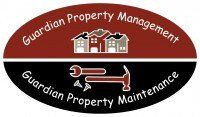What to Do if Your Life Tenant is Not Maintaining Property

TL;DR
- Life estate: A legal arrangement where ownership is split between a life tenant (current use) and a remainderman (future ownership).
- Life tenant: Has the right to live in, use, or rent out the property during their lifetime, but must maintain it.
- Remainderman: Gains full ownership after the life tenant’s death but cannot occupy or control the property until then.
- Rights of a remainderman: Protection of property value, veto over major decisions, and guaranteed future ownership.
- Responsibilities of a life tenant: Pay taxes, insurance, utilities, and ensure proper upkeep to prevent property deterioration.
- What to do if your life tenant is not maintaining the property: Start with communication, try mediation, and pursue legal action if necessary.
Safeguarding Property Value in Life Estate Inheritance
Inheriting property through a life estate arrangement can seem like an ideal solution for families looking to streamline inheritance. However, what happens when your life tenant is not maintaining the property? This can lead to significant property value loss if not addressed promptly.
At Guardian Property Management, we understand the complexities of property maintenance obligations that the life tenant arrangements create. Whether you're dealing with deferred maintenance, property neglect, or outright damage, knowing your rights and options is crucial for protecting your future inheritance.
What is a Life Tenant?
A life estate creates a legally recognized form of joint property ownership involving two distinct parties with different rights and timeframes. This arrangement serves as an estate planning tool that allows property to pass to heirs without probate complications.
The life tenant holds the right to occupy, use, and benefit from the property during their entire lifetime. They can live in the home, rent it to others, and collect any income the property generates. Most importantly, they maintain decision-making authority over day-to-day property matters.
The life tenant shares the ownership rights with another person, also called the remainderman. The property's title is automatically transferred to the remainderman once the life tenant has passed away.
Understanding these roles is essential when life tenant responsibility issues arise.
Understanding Life Tenancy Better
A life estate is essentially formed to create combined ownership of a property. The ownership rights are mutually shared between the life tenant and the remainderman. The remainderman cannot, under any condition, take possession of the property while the life tenant is alive.
The life tenant enjoys most traditional ownership benefits during their lifetime. They can renovate, landscape, rent portions of the property, and make reasonable modifications to suit their needs. However, these rights come with limitations designed to preserve the property's value for the remainderman.
The arrangement also places specific property maintenance obligations life tenants must fulfill. The life tenant cannot sell, mortgage, or transfer the property without the remainderman's explicit consent.
Rights of a Remainderman
Before addressing what to do when your life tenant is not maintaining the property, understanding your legal rights as a remainderman is crucial. These rights provide the foundation for any action you might need to take.
- Guaranteed Future Ownership: Your right to receive the property upon the life tenant's death cannot be revoked or altered without your consent. This creates a legally protected interest that courts will defend.
- Property Value Protection: You have the right to ensure the life tenant maintains the property's condition and value. This includes preventing both active damage and passive neglect that could diminish your inheritance.
- Veto Power Over Major Decisions: The life tenant cannot sell, mortgage, or make significant alterations to the property without your approval. This prevents actions that could harm your future interests.
Responsibilities of a Life Tenant
A life estate arrangement is relatively popular among aging parents who create a joint ownership life estate agreement with their children and continue to live in the same property for the remainder of their lives. Before entering a life estate agreement, the remainderman must be aware of the responsibilities a life tenant should fulfill.
Any Income Earned
As a life tenant, a person has the right to rent out any part of the property and receive the entire rent from the tenancy. However, the life tenant must also ensure that the property value remains intact despite the rentals.
Any taxes that must be paid on the rental income fall under the responsibility of the life tenant. The same applies to any increase in home insurance prices.
Essential Maintenance
The life tenant is legally responsible for maintaining the property. This includes all bill payments, insurance payments, utility payments, upkeep costs, gardening, and landscaping. The life tenant must also pay taxes associated with the property and any home insurance payments.
Prevent Deterioration
A life tenant's primary responsibility towards the remainderman is to prevent the deterioration of the property. Any misuse, damage, neglect, or alterations to the property that could potentially deteriorate its value are considered a violation of their responsibilities.
What to Do if Your Life Tenant Is Not Maintaining the Property | Explained
When facing a situation where the life tenant is neglecting property maintenance, a systematic approach offers the best chance of resolving issues while preserving family relationships and protecting your investment.
Communication
Start by thoroughly reviewing the life tenant's specific responsibilities and identifying any maintenance failures. Once you've identified the problems, communicate your concerns clearly and professionally. Avoid accusations or emotional language that might create defensiveness. Instead, focus on specific issues and the legal obligations involved.
Mediation
When direct communication fails to resolve property maintenance disputes with a life tenant, mediation offers a cost-effective alternative to litigation. Professional mediators experienced in estate and property disputes can help both parties find workable solutions.
Mediation allows both parties to present their concerns in a neutral environment while working toward mutually acceptable solutions. Life tenants may have legitimate reasons for maintenance delays, such as financial constraints or health issues, that mediation can address.
Legal Action
When communication and mediation fail to resolve maintenance issues, legal action becomes necessary to protect your rights and property value. Courts have significant power to enforce property maintenance obligations life tenants must fulfill.
The legal process typically begins with filing a petition that documents specific maintenance failures and requests appropriate relief. Courts generally prefer solutions that allow life tenants to remain in the property while ensuring proper maintenance, but they will order removal when necessary to prevent further property damage.
Takeaway
Creating a life estate arrangement provides an efficient inheritance mechanism, but success depends on all parties understanding and fulfilling their respective obligations. When a life tenant is not maintaining the property, remaindermen have significant legal protections and practical options for resolution.
The key to success lies in addressing problems early, communicating clearly, and escalating systematically when cooperation fails. Professional help from experienced
can often prevent disputes while ensuring proper maintenance throughout the life estate period.
Get Expert Help with Life Estate Property Issues from Guardian Property Management
Dealing with a life tenant who fails to maintain the property can be stressful and complicated. As a leading
property management company in Bloomington
, Guardian Property Management understands the unique challenges of life estate arrangements and provides expert guidance to protect your property investment.
Our experienced team can help you navigate these complex situations while preserving family relationships.
to secure professional assistance with life estate property management challenges.
Call us at
or write to
.
Address: 3001 Broadway St NE, Suite 605, Minneapolis, MN 55413
FAQs
Q1. Can I inspect the property without the life tenant's permission?
Ans. Remaindermen have rights to reasonable property inspections, but these must be exercised with proper notice and at reasonable times. You cannot interfere with the life tenant's quiet enjoyment of the property.
Q2. How long do I have to wait before taking legal action?
Ans. There's no specific waiting period, but courts prefer evidence that you attempted communication and reasonable resolution before filing lawsuits. Document your efforts to resolve issues cooperatively.
Q3. What can I do if my life tenant is not maintaining the property?
Ans. If your life tenant is not maintaining the property, begin by reviewing and identifying the maintenance gaps. Communicate your concerns and reinforce their responsibilities to the life tenant. If this does not resolve the issue, involve a mediator who can help both parties reach a workable solution. Lastly, opt for legal action.















